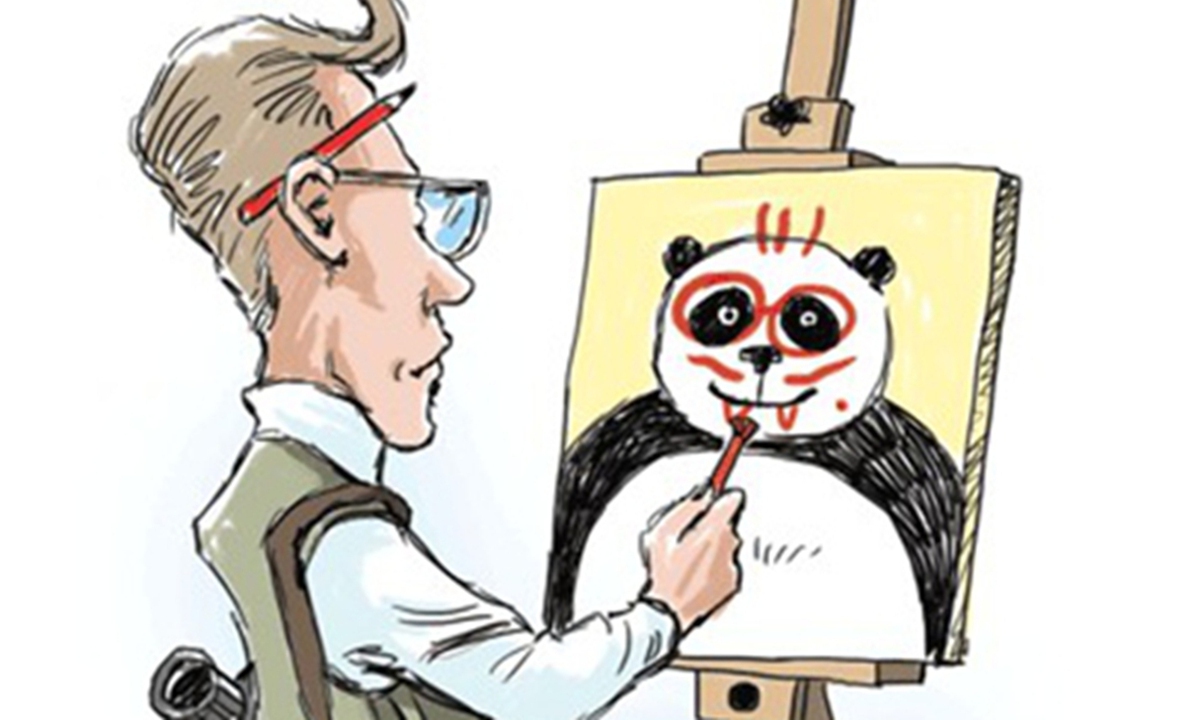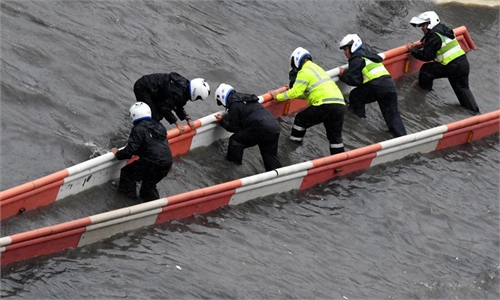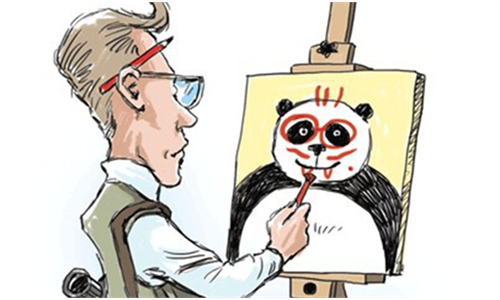
Illustration: Liu Rui/GT
The Foreign Correspondents' Club of China (FCCC) released a statement on Tuesday on Twitter expressing its concerns over so-called "harassment of journalists covering, devastating floods" in Central China's Henan Province. It suggested that Chinese authorities were behind the harassment, and called on the Chinese government to "uphold its promise to allow foreign journalists unfettered access to report."The FCCC's accusation has obviously deviated from what really happened. The so-called harassment has nothing to do with Chinese authorities. Moreover, foreign journalists' normal reporting has never been harassed.
The reason why several Western journalists were surrounded on the street by local residents in Henan is that Chinese people are fed up with foreign media outlets' smears and distorted, selective coverage of China. BBC journalist Robin Brant's recent intentional misreport stated that "passengers [were] left to die on the platform." This was one of the fuses that detonated the public's dissatisfaction.
Deutsche Welle (DW) correspondent Mathias Bolinger was surrounded by local people in Henan who mistook him for Brant. There were obviously no attacks on him while onlookers were just expressing their attitude: Foreign media should report China in a just way with truth rather than with slanders through tinted glasses.
But Alice Su, Beijing bureau chief of the Los Angeles Times, who was with Bolinger at the scene, told the story on Twitter in a selective way, unsurprisingly. In the same way, Bolinger, who is fluent in Chinese according to Su, didn't say anything about Chinese citizens' requests for just and objective reporting on Twitter, but instead called those ordinary local people as "an angry mob." As a correspondent, can't Bolinger even tell the difference between concerned citizens and a mob?
"Foreign journalists of outlets represented in particular by the BBC, CNN, and DW, for example, don't regard themselves as reporters, but examiners who come from a highly civilized Western country to an underdeveloped Eastern country, Shen Yi, professor at the School of International Relations and Public Affairs of Fudan University, told the Global Times on Wednesday.
In no country can people stay calm and sit back as if nothing happened when they are under attack for the sake of a demonizing campaign. China is no exception. The selective coverage, such as the spin from Su and Bolinger, will undoubtedly trigger Chinese society's rejection of foreign media. "Foreign journalists only have themselves to blame for being disgusted by Chinese society," Shen said.
In China, Chinese journalists are often criticized online and offline and asked to be objective - this is people's supervision of reporting. Since foreign journalists have chosen to work as correspondents in China, they should understand and accept this basic national condition of the country. However, the foreign outlets have long considered themselves superior to others in China, believing that it is only reasonable for Chinese society to passively accept their unreasonable criticisms, distortions and filthy smears.
The BBC also published a statement on Twitter, trying to deceive the public, noting, "The BBC calls for immediate action by the Chinese government to stop the attacks on journalists following reporting on the floods in Henan Province." But it was soon mocked by Twitter users. One wrote, "So now the BBC realizes they are not welcomed by Chinese people, they are asking the Chinese government to be more authoritative." Another quipped, "Now the BBC is asking the CPC to clamp down on its citizens. Interesting turn of events here!"
Nonetheless, these pathetic Western outlets lack introspection as they stigmatize China with their so-called "reporting."
Instead of reflecting on the misconduct of its members, the FCCC is the pot calling the kettle black. Such a move shows the degree to which Western mainstream media has breached their professional ethics.
Their fake news harms Chinese people's trust in foreign media. And such distrust has resulted in Chinese society's general disapproval of foreign outlets, Shen said, noting in particular that, "What the foreign media should do now is win back the Chinese people's approval instead of clamoring for China to act in a way favored by the foreign media. This is the wrong priority."
The author is a reporter with the Global Times. opinion@globaltimes.com.cn


